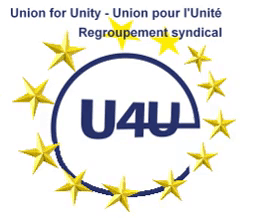European Parliament
Recruitment and training
The European Parliament must carry out its tasks by fully assuming its institutional and political role. For this, it must have a forward-looking Human Resources management and not only administrative and regulatory. He must be able to anticipate essential needs and talents, as well as follow and accompany staff throughout his career. More alternative methods of recruitment must be allowed, such as the Junior Professional Programme. Above all, to guarantee compliance with ethical rules in recruitment.
Entry into service should be rethought in terms of its objectives and modalities, by improving, beyond the probationary period, the reception and training of newcomers. New staff should be allowed to familiarize themselves with the services of the Institution and its history. To do this, in the absence of vacant posts, the probationary period could be preceded by the immediate award of a temporary agent contract for a period of 2 years, allowing a faster recruitment of successful candidates, as soon as their external competition is passed. During this two-year period, successful candidates would receive differentiated training and pathways in the services before being offered a civil servant position;
The same two-year path could be offered to public servants who enter the public Page 17 from 21 service directly as a public servant. During the first two years, the future civil servant should also have the opportunity to discover several fields and/or DGs, and to follow the necessary training for the rest of his/her career. The probationary period could thus ensure a real additional assessment of the skills of future civil servants. Specific pathways should be offered to colleagues destined for managerial positions; ▪ To help colleagues build a career as soon as they start work, the European Parliament must accompany their learning with a programme of targeted, thematic, linguistic and IT training. A specific effort must also be made for colleagues who need to reorient their career path or who change positions;
Efforts still need to be made to better accommodate new staff at all duty stations. Our organization is complex: supervision and facilitated orientation are desirable (training, support, possibilities of several courses);
Precariousness and disparities have increased since 2004 over the course of the various reforms. Staff unity has been put in difficulty. In order to reduce disparities between different career paths, we are in favour of organizing internal competitions allowing all officials (AD, AST, AST/SC) and temporary agents (AT) to reach higher grades;
Contract agents (CAs) should be able to benefit, after 6 years in office, from temporary contracts (TA) for one or even two additional year(s), thus allowing them to access internal competitions with a higher number of successful candidates. Internal competitions should be regularly planned and published;
In the same vein, the employer should provide free training to staff, including nonpermanent staff, who prepare for external competitions (as U4U obtained from the EUIPO's employer in Alicante). Indeed, U4U acts in the interest of all staff and prefers to give everyone access to free training given by the employer, rather than forcing them to join a union in order to benefit from it;
